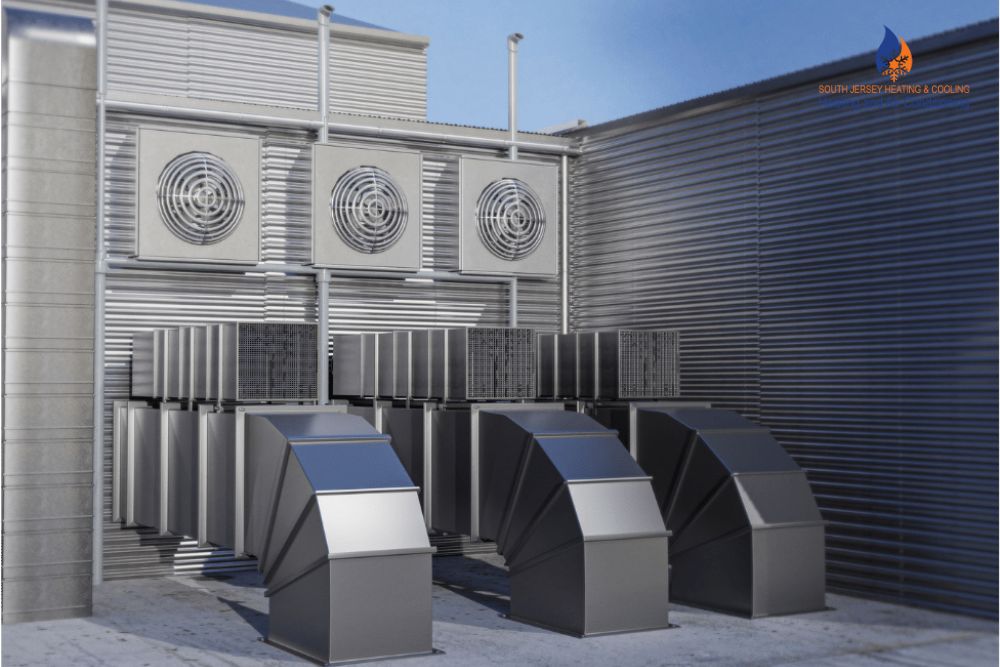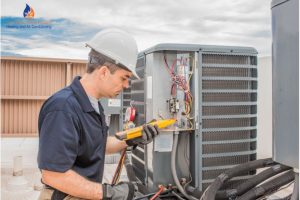Understanding BTUs in Commercial HVAC Systems: What Every Property Manager Should Know
Welcome to the world of Commercial HVAC, where understanding the concept of BTUs – British Thermal Units – is crucial for maintaining the optimal comfort and efficiency of your commercial properties or multiple residences. Here at South Jersey Heating and Cooling, we believe in empowering property managers with the knowledge they need to make informed decisions about their heating and cooling systems. Let’s dive into the essentials of BTUs in the context of commercial properties.
- BTUs: The Energy Measure in Commercial HVAC
A BTU is the amount of energy required to increase the temperature of just one pound of water by one degree Fahrenheit. In commercial HVAC systems, BTUs are used to quantify the heating and cooling capacity. This measurement helps in determining the power required to heat or cool large spaces efficiently.
- Importance of the Right BTU Rating in Commercial Spaces
Choosing the correct BTU rating is even more critical in commercial settings than in residential. An undersized system will have trouble maintaining comfortable temperatures in large or multiple spaces, leading to inefficiency and higher operational costs. Conversely, an oversized system can lead to frequent cycling, uneven temperature distribution, and unnecessary energy expenditure.
- Calculating BTUs for Commercial Properties
The process of calculating the appropriate BTU for commercial properties is more complex than for a single home. Factors like the total square footage of all spaces, ceiling heights, occupancy, window sizes, and even the building’s usage play significant roles in determining the right BTU. Often, professional HVAC calculations involve detailed analysis to ensure all these factors are appropriately accounted for.
- Energy Efficiency and BTUs in Commercial HVAC
In commercial HVAC systems, efficiency is paramount. A system that can deliver the required BTUs while using less energy is ideal. This is often reflected in ratings like EER (Energy Efficiency Ratio) and IEER (Integrated Energy Efficiency Ratio), which are crucial for commercial systems. Energy-efficient systems contribute to a more sustainable operation and can reduce operational costs.
- Maintaining BTU Efficiency in Commercial HVAC Systems
Regular maintenance is vital to ensure that a commercial HVAC system continues to operate at its optimal BTU output. Commercial systems undergo more wear and tear due to their extensive usage. Scheduled maintenance checks can prevent common issues like clogged filters or duct leaks, which can significantly impact the system’s efficiency and capacity to maintain the right BTUs.
In Conclusion…
Understanding and managing BTUs in commercial HVAC systems is key to ensuring comfort, efficiency, and cost-effectiveness in your commercial properties. It’s not just about the power; it’s about the right balance and maintaining it.
At South Jersey Heating and Cooling, we specialize in addressing the unique HVAC needs of commercial properties and multiple residences. Our team of experts is ready to guide you in selecting the appropriate systems, conducting precise BTU calculations, and providing regular maintenance to keep your properties comfortable and efficient.
Need expert advice or service for your commercial HVAC system? Contact us today. We’re here to help you optimize your heating and cooling systems, ensuring they run smoothly for the comfort of all occupants.









